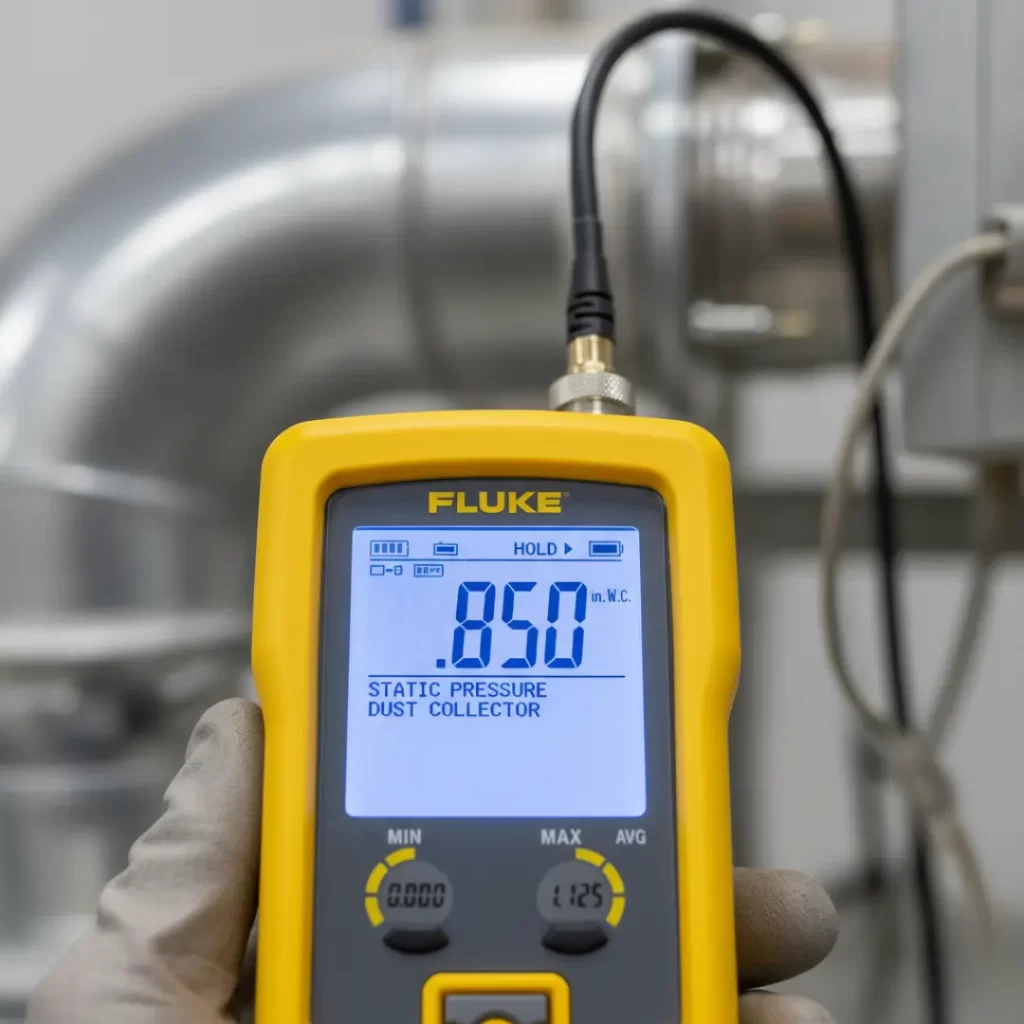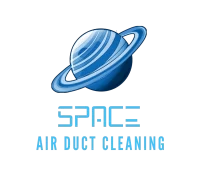In the heart of the Dallas Fort Worth Metroplex, where the summer heat is intense and reliable air conditioning is non-negotiable, maximizing your HVAC efficiency isn’t just about comfort; it’s about survival and savings. Yet, many homeowners overlook a critical metric that dictates how hard your system works and how long it lasts: static pressure.
If your AC unit seems to run constantly, your energy bills are spiking, or you’re getting inconsistent cooling across your home, the culprit might be an invisible force pushing back against your conditioned air. Understanding what static pressure is and what a “normal” reading should be can empower you to protect your investment and ensure a cooler, healthier home.
At Space Air Duct Cleaning, we see firsthand how neglected ductwork and airflow problems sabotage even the newest, most expensive HVAC systems in Dallas. Here is your definitive guide to static pressure and why getting it checked is crucial for every Texas homeowner.
What is HVAC Static Pressure?
Static pressure is simply the total resistance to airflow within your home’s ductwork system.
Think of your HVAC system’s blower as a heart and your air ducts as blood vessels. For the heart to circulate blood (air) effectively, it needs a clear pathway. When that pathway is restricted or narrowed, the heart has to pump harder, increasing the pressure inside the vessels.
In HVAC terms, this pressure is measured in Inches of Water Column (i.w.c.) or “inches of water.” This measurement quantifies the force required to move air through every component of the system: the return grille, the filter, the cooling coil, the heat exchanger, and the supply ductwork.
The static pressure you measure is known as the Total External Static Pressure (TESP). Every HVAC unit is engineered to operate within a specific TESP range, typically outlined on the blower motor’s specification plate. When the actual pressure exceeds this design limit, you have a problem.
What is ‘Normal’ or Healthy Static Pressure?
For the vast majority of residential HVAC systems in the Dallas area, particularly those installed in the last few decades, the designed maximum Total External Static Pressure (TESP) is often set at 0.5 i.w.c. (half an inch of water).
However, just because your system is designed to handle up to 0.5 i.w.c. doesn’t mean it should operate there. To achieve peak performance, efficiency, and airflow, the ideal operating range for your TESP is often much lower:
- Ideal Static Pressure Range: 0.1 i.w.c. to 0.2 i.w.c.
Operating closer to the 0.5 i.w.c. limit means your blower motor is working at maximum strain, leading to higher energy use and faster wear. A professional aims to diagnose and fix issues until the system is running near or below 0.3 i.w.c. to ensure longevity and efficiency.
In short: Lower is always better, as it indicates less resistance and maximum airflow (CFM, or Cubic Feet per Minute) to cool your home.
The Costly Problem of High Static Pressure
When your system’s static pressure climbs too high (i.e., above 0.5 i.w.c.), it creates a cascade of problems that are particularly detrimental in Texas heat:
1. Reduced Airflow (CFM)
High resistance directly reduces the volume of air (CFM) that reaches the furthest rooms in your Dallas home. This means poor cooling, hot spots, and general discomfort, regardless of how cold the air leaving the coil is.
2. Reduced Efficiency and High Bills
When the blower motor fights high static pressure, it draws significantly more electricity. This dramatically increases your monthly utility bills while reducing the system’s overall Seasonal Energy Efficiency Ratio (SEER) rating, negating any savings you expected from a modern unit.
3. Premature Equipment Failure
The strain from high pressure can cause the blower motor to overheat, leading to expensive repairs or a complete breakdown. Furthermore, reduced airflow across the evaporator coil in the summer can cause it to freeze up, stressing the compressor and potentially leading to the need for costly Air Duct Installation or HVAC replacement far sooner than expected.
4. Overheating and Short Cycling
During the 100-degree days common in Dallas summers, a motor struggling against high pressure is a motor nearing its burnout point. This overheating can cause the system to “short cycle” (turn off prematurely) or, worse, break down completely when you need it most.
Causes of Unhealthy Static Pressure
High static pressure is not a disease in itself; it’s a symptom of underlying problems within your air delivery system. Knowing the common causes is the first step toward a solution.
1. The Wrong Air Filter
The single most common cause of high static pressure is a restrictive filter. While high-efficiency filters (like MERV 11 or higher) are excellent at capturing fine particles, they can choke an older or poorly designed system. If your HVAC unit is not designed for a high MERV rating, using one creates a wall of resistance, starving the blower motor of the air it needs. Always use a filter recommended by your HVAC technician.
2. Dirty and Clogged Coils
The evaporator coil, located above your furnace or air handler, is essential for cooling. If this coil becomes coated in dust, dirt, or biological growth, it becomes a major obstruction to airflow. The coil has tightly packed fins that trap even the smallest debris. Regular maintenance is necessary to keep this component clean and the pressure healthy.
3. Restrictive, Undersized, or Leaky Ductwork
Many older homes in Dallas have duct systems that were undersized from the start or were not upgraded when a larger, higher-CFM AC unit was installed. Other issues include:
- Kinks and Bends: Sharp 90-degree turns instead of gentle sweeps.
- Poor Design: Too many branches, long runs, or restrictive transitions.
- Contamination: Debris, dust, and particulate matter built up over years of use. If your ducts are choked with years of contaminants, a professional Air Duct Cleaning service is necessary to remove the blockages that contribute to resistance and poor air quality.
4. Closed or Blocked Vents and Dampers
Closing supply vents in unused rooms might seem like a good way to save money, but it forces all the air intended for that branch to pile up, increasing static pressure across the entire system. Similarly, if your return grilles are blocked by furniture or curtains, the system cannot breathe properly, causing immediate and dramatic pressure spikes.
Professional Diagnosis and Resolution
Fixing static pressure problems is not a DIY task; it requires precision and specialized tools.
How Space Air Duct Cleaning Can Help
Our technicians serving the Dallas area utilize a digital manometer to perform an Air Duct Inspection and measure the pressure differential across key components like the return grille, filter rack, and evaporator coil. This process isolates the component causing the resistance.
Depending on the diagnosis, the solution may involve one or more of the professional services we provide:
- Removing Blockages: We perform comprehensive Air Duct Cleaning to eliminate dust, debris, and years of build-up that restrict airflow and foster mold growth. Clean ducts immediately reduce resistance.
- Sanitization and Purity: After cleaning, we can apply Air Duct Sanitization and install a UV Air Purifier to prevent biological growth, which can also contribute to coil fouling and increased pressure over time.
- Duct Integrity: We inspect your ductwork for leaks and damage, recommending repairs or adjustments to the duct structure or sizing that will directly lower TESP and ensure maximum CFM delivery.
- Filter Recommendations: We provide expert advice on the correct MERV rating and filter type for your specific HVAC model and Dallas home design, ensuring optimal filtration without choking your system.
Protect Your Investment. Breathe Easier.
In a climate like Dallas, your HVAC system is too critical an asset to let it struggle against high static pressure. Operating outside the normal range is a direct path to higher bills, reduced comfort, and the premature death of your air conditioner.
If you are experiencing unusually high energy costs, poor cooling, or excessive noise from your air handler, do not wait for a major breakdown. Take proactive steps to preserve your system’s health.
Ready to find out if your Dallas home’s air is flowing freely?
Contact the certified experts at Space Air Duct Cleaning today! We specialize in comprehensive air system diagnostics and cleaning that ensure your HVAC operates at its safest, most efficient, and most reliable best.
Request Your Free Air Duct Inspection Quote to protect your home from the hidden dangers of high static pressure!
